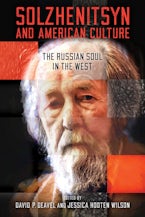The morality plays draw on the tropes, directives, and categories of this pastoral literature. Mankind’s lead devil Titivillius, for instance, appears in numerous penitential manuals and sermons as the demon who collects the dropped words of priests who garble the mass or records the idle words of gossiping congregants. Or, in the Castle, when Humankind confesses his sins, he describes them using classificatory schemes outlined in countless confessional manuals. However, in taking up the decree’s language of the sick soul, the morality plays downplay the priest’s role as diagnostician, instead emphasizing the restorative work of the performance of penance itself. Absent is the “minute analysis of conscience” encouraged by vernacular confessional texts. As previously noted, Wisdom’s stage directions indicate that Anima’s confession occurs off stage. In Mankind, the confessional scene emphasizes Mankind’s recognition of God’s mercy rather than the itemization of sin. In Everyman, Everyman asks Confession for mercy, but the dramatic action underscores penitential purgation of sin and the revival of Everyman’s Good Deeds rather than detailed self-examination. Of the moralities, the Castle includes the most extended dramatization of auricular confession, but even then its central character confesses only in general terms. Penance and Shrift do not “carefully inquire about the circumstances of both the sinner and the sin”; instead, Humankind only broadly acknowledges that he has committed all seven of the deadly sins “many a þrowe [time]” both “in home and halle,” broken the ten commandments, misspent his “fyue wyttys” (five senses), and failed to give money to the poor (1474-86).
The plays are also not primarily catechistic in nature. In fact, as I argue in the chapters below, they often foreground the pedagogic limitations of dogmatic exposition of doctrine. Instead, they present the penitential acknowledgement of sin as itself a generative act that produces new forms of self-knowledge. As Robert Potter notes in his 1975 study of the morality play, the plays describe sin itself “as a necessary stage in the education of Mankind.” In linking the experience of sin with the soul’s self-knowledge, the morality plays resonate with contemporary devotional, literary, and pastoral texts that likewise understand sin and suffering to produce new ways of seeing God and the self. For instance, an understanding of the pedagogic value of sin and suffering can be discerned late medieval commentaries on the Penitential Psalms which, Lynn Staley contends, “adumbrate a drama that begins in abject self-consciousness and ends in the acceptance of God’s merciful sovereignty.” In William Langland’s Piers Plowman, the narrator’s experience of periods of sinful abandon and adversity, as both Nicolette Zeeman and Rebecca Davis have argued, are key to preparing him for reform. Notably, the Speculum Sacerdotale suggests that the experience of auricular confession itself transforms the soul’s self-knowledge. Presenting penance as “a nedeful thyng vnto a synner þat desireþ for to recouere heleþ of his soule,” the Speculum Sacerdotale indicates that the pedagogical work of confession extends beyond reinforcing parishioners’ knowledge of the rudiments of the faith:
Alle this is to be schewid and to be sorowed that he may after siche verrey knoweliche of his synne fynde God merciful to hym. For in knowlegynge of his synne, he shall fynde ekynge [increase] of grace. For-thi knowe the maner and qualite of thy synne as I now rehercy, and clense it with the teris of thy y3en, and sorowe for the vertu þat þou vsid no3t in alle that tyme, for it is no3t onely to sorowe for the synne, but also for the vertue þat was therfore depriuyed. (65/33-66/1)
Through acknowledging their sins, the Speculum writer suggests, sinners will discover God’s mercy and grace. Moreover, to acknowledge fully the damage done by one’s sins, one must recognize not only the harm done by the sins themselves but the opportunities for virtue that have been lost.
By foregrounding the pedagogical and performative importance of penance, the morality plays present a sophisticated defense of penance that, by seeking to recuperate penance as a ritual form, deflects contemporary reformist concerns about the materialism of contemporary penitential practices and counters lollard arguments that challenged the necessity of oral confession to a priest. Geoffrey Chaucer’s famous depiction of the Pardoner in the Canterbury Tales reflects broader concerns about abuses associated with the system of indulgences, and his Friar, who in the General Prologue gladly accepts penitents’ silver in lieu of “wepynge and preyeres,” reflects contemporary unease about the denigration of the sacrament into financial transactions between penitent and confessor that threatened to undermine penance by compromising contrition. Such anti-clerical sentiments are explicitly given voice in Everyman. When Everyman leaves the stage to receive last rites, Five Wits lauds the priesthood who, as ministers of the sacraments and God’s earthly representatives, “excedeth all other thynge” and are set “aboue aungelles in degree” (732-49). Knowledge, however, is more skeptical: “If preestes be good, it is so, suerly,” he replies, going on to denounce priests who “theyr Sauyour do by or sell,” whose children “sytteth by other mennes fyres,” and who live an unclean life rife with “lustes of lechery” (750-63). Five Wits dismisses Knowledge’s remarks, saying “I trust to God no suche may we fynde” (764-65). Although their exchange introduces doubts about the virtue of the priesthood and thus their ability to fulfill their pastoral role, the play nonetheless overwhelmingly confirms the absolute necessity of penitential confession by demonstrating the profound changes the ritual produces in Everyman.
(excerpted from ch 1)











